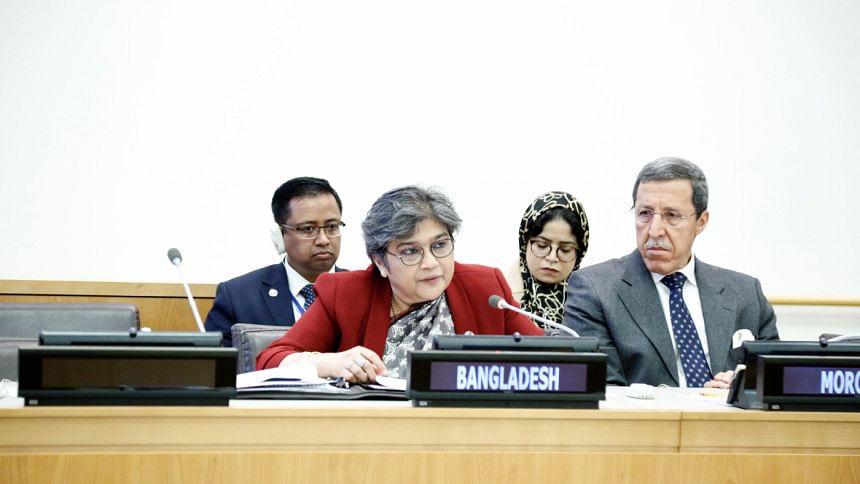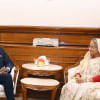'Bangladesh maintains zero tolerance policy towards extremism'

Bangladesh maintains a “zero tolerance” policy towards terrorism and violent extremism, said Bangladesh’s Permanent Representative to the UN, Ambassador Rabab Fatima, at the UN Headquarters today.
“While adopting a ‘whole-of-society’ approach in our efforts, we have also included de-radicalisation and counter-terrorism issue in school curriculum,” she said while speaking as a panelist at a side-event in the UN Headquarters in New York titled ‘Addressing hate speech and preventing incitement to discrimination, hostility and violence: Synergies within the United Nations system’.
As a part of observance of the ‘Inter-Faith Harmony Week’, the UN Office on Genocide Prevention and the Responsibility to Protect organised the event with Bangladesh, Morocco and Italy as cosponsors.
In her remarks, Ambassador Fatima quoted Prime Minister Sheikh Hasina’s statement “Religion is one’s own but festivals are for everyone” and shared how in Bangladesh Muslims, Hindus, Buddhists and Christians are cohabiting in harmony and peace.
She shared how Bangladesh has been leveraging the place of religious leaders and teachers in the society to guard against misuse of religion and spread of hatred, intolerance and violence.
She cited examples of involving religious leaders, places of worship and religious organisations and highlighted Bangladesh government’s “zero tolerance” policy towards terrorism and violent extremism.
Ambassador Fatima focused on Bangladesh’s multilateral engagements in preventing violent extremism and propagating inter-religious and inter-cultural dialogue as the proponent of Bangladesh’s signature resolution on Culture of Peace at the UN.
She suggested that the UN Plans of Action are implemented to counter hate speech, including against the Rohingyas.
Adama Dieng, the UN Secretary-General’s Special Adviser for the Prevention of Genocide, who moderated the event, specifically mentioned Bangladesh’s Prime Minister Sheikh Hasina -- praising her decision to initiate formal education for the Rohingya population in the camps in Cox’s Bazar.
A large number of member states and civil society organisations attended the event.

 For all latest news, follow The Daily Star's Google News channel.
For all latest news, follow The Daily Star's Google News channel. 







Comments